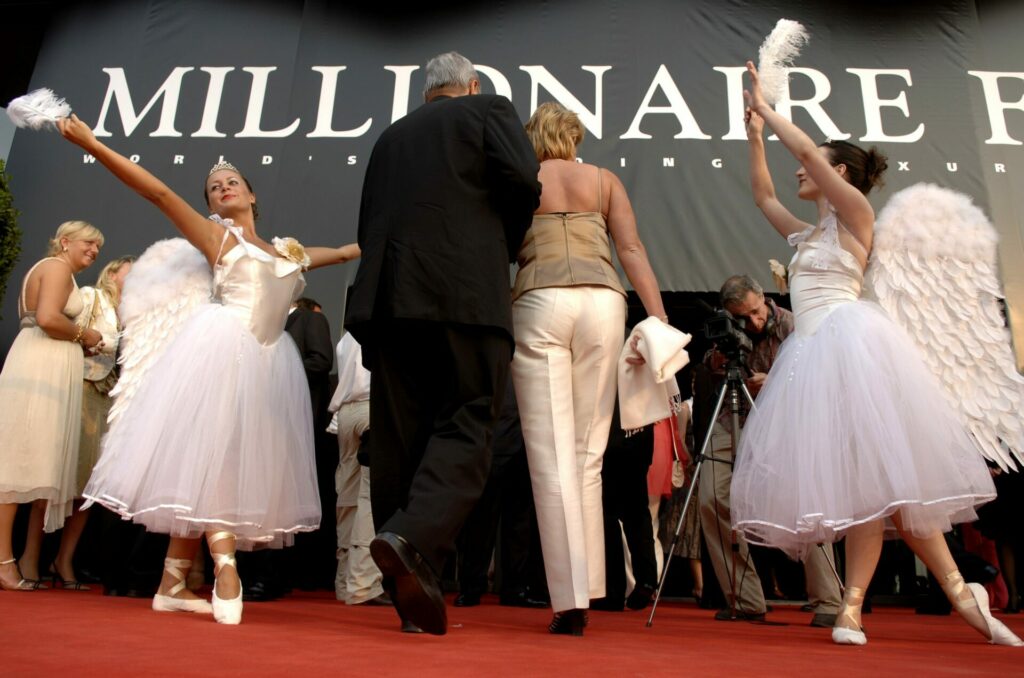Almost two-thirds of the $42 trillion (around €39 trillion) in total global wealth created over the past two years went to the world's richest 1%, a new study by Oxfam found.
The report — of which the publication coincided with the first day of the annual gathering of the world's economic and political elite at the World Economic Forum in Davos — found that, on average, the world's wealthiest 1% (almost 80 million people) have become around $330,000 richer since 2020, while the remaining 7 billion people earned just $2.
"While ordinary people are making daily sacrifices on essentials like food, the super-rich have outdone even their wildest dreams," said Gabriela Bucher, Executive Director of Oxfam International. "Just two years in, this decade is shaping up to be the best yet for billionaires — a roaring '20s boom for the world's richest."
The global wealth distribution was found to be especially skewed toward the ultra-rich. In particular, billionaires — of whom there are just 3,300 in the world today (or 0.00004% of the world's population) — pocketed $1.7 million for every $1 earned by the world's poorest 90%.
Billionaires' net fortunes are currently estimated to be increasing by $2.7 billion a day, while 1.7 billion people now live in countries where inflation is outpacing wage growth.
Fixing the problem
To address the dramatic rise in inequality, Oxfam recommended a massive overhaul of the world's taxation system.
More specifically, it argued that the deep cuts in the top tax rates in many countries over the past several decades should be reversed, while governments around the world should implement new measures to prevent the world's rich from avoiding — or evading — paying taxes altogether through the use of loopholes and tax havens.
In particular, Oxfam estimated that Elon Musk — the world's second richest man — paid a true tax rate of 3% from 2014 to 2018, while Aber Christine, a flour vendor in Uganda, currently makes $80 a month and pays a tax rate of 40%.
"Taxing the super-rich and big corporations is the door out of today's overlapping crises," Bucher said. "It's time we demolish the convenient myth that tax cuts for the richest result in their wealth somehow 'trickling down' to everyone else. Forty years of tax cuts for the super-rich have shown that a rising tide doesn't lift all ships — just the superyachts."
Related News
- ‘Ramen noodles only’: Unpaid internships cost young people over €1,000/month
- 'Ultra-polluting and socially-inequitable': Private jets descend on Davos
Oxfam's warnings about the dangers of widening global inequality have been echoed in recent years by mainstream financial institutions. The IMF has claimed that "global inequalities are in bad shape and mostly do not appear to be getting better", while the World Bank has warned that "this increasing divergence of fortunes is especially troubling given the possibility of social discontent in developing countries."
In his book, The Price of Inequality, the Nobel Prize-winning economist Joseph Stiglitz suggested that the world is now moving towards a "dual economy", in which "society [is] divided between the haves and the have-nots... in which the rich live in gated communities, send their children to expensive schools, and have access to first-rate medical care," while "the rest live in a world marked by insecurity, at best mediocre education, and in effect rationed health care."
"[Whether] the gates grow higher and the societies split farther and farther apart, I do not know," Stiglitz wrote. "It is, however, the nightmare towards which we are slowly marching."

